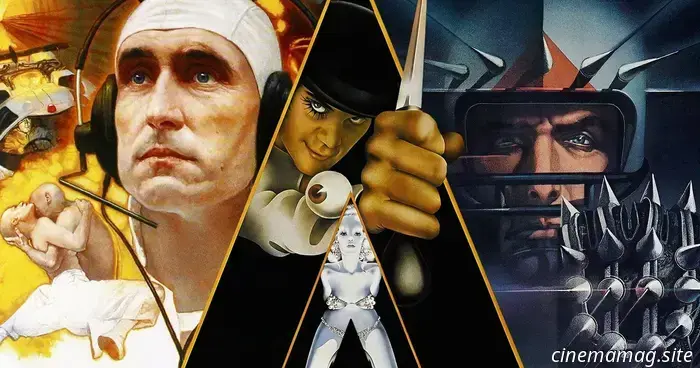
7 Remarkable Dystopian Thrillers from the 1970s
Casey Chong revisits the 1970s with a selection of notable dystopian thriller films.
The 1970s marked a period of auteur-driven cinema that celebrated artistic expression and saw the rise of modern blockbusters like Jaws and Star Wars. This decade also introduced films addressing dystopian themes, often arising from Cold War anxieties and widespread economic turmoil. Here are seven of the finest dystopian thrillers from the 1970s.
THX 1138 (1971)
George Lucas’s feature-length directorial debut stands out, particularly when contrasted with his later blockbuster work seen in Star Wars. Originating from his 1967 short film at USC, THX 1138 follows Robert Duvall’s character, a citizen living beneath a totalitarian regime in a sprawling underground world. Lucas envisions a dystopian future where emotions and sexual activities are forbidden, compelling citizens to take drugs that keep them subdued.
The film is minimalist, lacking the elaborate special effects that would come to characterize Lucas's future projects. Instead, it utilizes a clean, white aesthetic and a sterile ambiance, paired with subtle performances. Duvall’s role illustrates a gradual rediscovery of humanity, sparking a rebellious desire to escape reality. The film is also notable for its sound design, conveying the cold and depersonalized atmosphere filled with mechanical noises and robotic chatter.
A Clockwork Orange (1971)
Stanley Kubrick’s adaptation of Anthony Burgess’s 1962 novel remains one of the most controversial films ever made, even decades after its 1971 release. Kubrick presents a dystopian Britain characterized by the clash of individuality and conformity, youth rebellion, and societal unrest — a prime example of thought-provoking cinema. His multi-layered direction infuses the genre with dark comedy, social satire, and disturbing thriller elements.
Kubrick reflects the film's rebellious spirit through stylized visuals, using slow-motion and fast-paced shots along with a striking classical music score. The film centers around Malcolm McDowell’s standout portrayal of Alex, who, alongside his gang of "droogs" in matching white attire and black bowler hats, engages in a series of violent acts.
Soylent Green (1973)
The unsettling nature of truth becomes apparent in Richard Fleischer’s Soylent Green, a defining dystopian thriller of the disillusioned 1970s. Charlton Heston delivers one of his best performances as Robert Thorn, a New York detective investigating the murder of a Soylent Corporation executive. His subtly restrained portrayal adds depth to the uncovering of a hidden conspiracy.
Beyond the murder mystery, Fleischer incorporates ecological concerns related to pollution and overpopulation, alongside social critiques of corruption and corporate greed. The film's famous twist reveals the extreme lengths the Soylent Corporation will go to for profit, unforgettable for Heston’s line, “Soylent Green is people!” which has become a pop-culture reference.
Sleeping Dogs (1977)
Roger Donaldson’s career spans diverse genres, including historical epics and neo-noir, beginning with the political thriller Sleeping Dogs, which merges these genres with action and dystopian elements. Set in a near-future fascist New Zealand, the film reflects real-world issues of the 1970s such as Cold War tensions and social upheaval, maintaining a gritty realism that captivates audiences.
Despite limited funding, Donaldson creates a tension-filled guerrilla-style thriller, marking the cinematic debut of Sam Neill in a major role as an ordinary man caught in turmoil. Sleeping Dogs was a significant milestone for New Zealand cinema, achieving both critical and commercial success at the time.
Silent Running (1971)
Douglas Trumbull, renowned for his work on the visual effects of 2001: A Space Odyssey, made his directorial debut with Silent Running, an allegorical sci-fi film focusing on ecological themes and a man’s struggle to protect Earth’s last plant specimens. Bruce Dern delivers a memorable performance as Freeman Lowell, a botanist who resorts to extreme measures to preserve the precious remnants.
Silent Running explores the enduring themes of environmentalism and human connection with nature, alongside Trumbull’s impressive visuals created through practical effects and miniatures, notably the elaborately designed 25-foot-long Valley Forge spaceship.
Rollerball (1975)
Disregard John McTiernan’s unsuccessful 2002 remake; the original by Norman Jewison remains a powerful depiction of a dystopia dominated by a megacorporation. This empire’s authoritarian grip extends to monopolizing the economy and controlling entertainment, with the film zeroing in on the violent sport of Rollerball — a mix of roller derby, football, and gladiatorial combat. The film vividly portrays the adrenaline-fueled nature of the sport.
Jewison’s straightforward direction addresses the provocative issues of corporate power and manipulated entertainment within society’s future. James Caan delivers a remarkable performance as Jonathan E., the weary team captain.
Westworld








Other articles
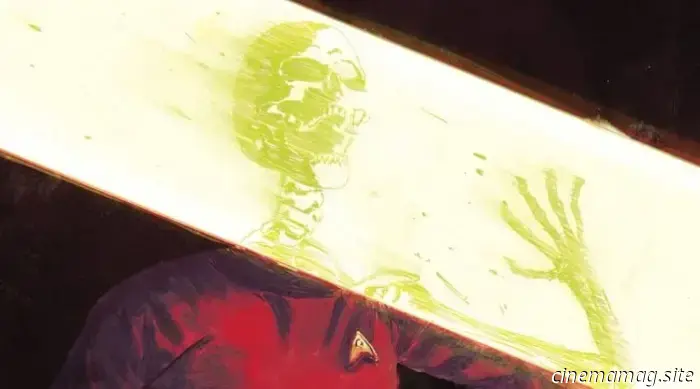 Star Trek: Red Shirts #2 - Review of the Comic Book
Villordsutch critiques Star Trek: Red Shirts #2… “Red Shirts” in the Star Trek universe have turned into – to put it politely – somewhat of a punchline. The phaser fodder of the universe has now become little more than memes for nerds worldwide. Nonetheless, those who don the genuine red uniforms […]
Star Trek: Red Shirts #2 - Review of the Comic Book
Villordsutch critiques Star Trek: Red Shirts #2… “Red Shirts” in the Star Trek universe have turned into – to put it politely – somewhat of a punchline. The phaser fodder of the universe has now become little more than memes for nerds worldwide. Nonetheless, those who don the genuine red uniforms […]
-Movie-Review.jpg) Wake Up Dead Man: A Knives Out Mystery (2025) - Film Review
Wake Up Dead Man: A Knives Out Mystery, 2025. Directed by Rian Johnson. Featuring Daniel Craig, Josh O’Connor, Glenn Close, Josh Brolin, Mila Kunis, Jeremy Renner, Kerry Washington, Andrew Scott, Cailee Spaeny, Daryl McCormack, and Thomas Haden Church. SYNOPSIS Benoit Blanc is back to tackle his most perilous case to date. Rian Johnson and Daniel Craig are back for […]
Wake Up Dead Man: A Knives Out Mystery (2025) - Film Review
Wake Up Dead Man: A Knives Out Mystery, 2025. Directed by Rian Johnson. Featuring Daniel Craig, Josh O’Connor, Glenn Close, Josh Brolin, Mila Kunis, Jeremy Renner, Kerry Washington, Andrew Scott, Cailee Spaeny, Daryl McCormack, and Thomas Haden Church. SYNOPSIS Benoit Blanc is back to tackle his most perilous case to date. Rian Johnson and Daniel Craig are back for […]
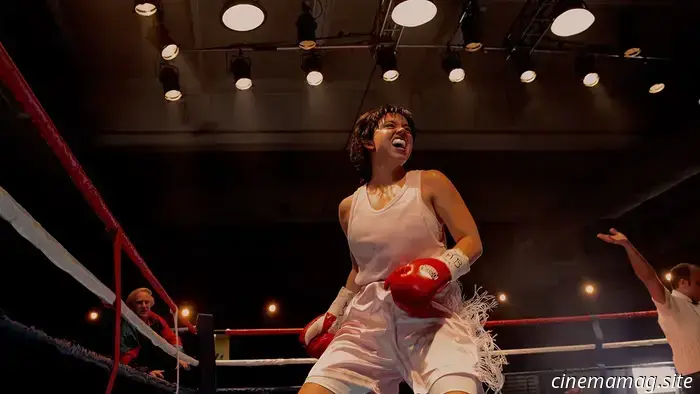 TIFF Review: Christy Attempts an Unapologetically Formulaic Oscar Bid for Sydney Sweeney
"Aren't we beyond this?" That was the thought that crossed the writer's mind while watching Christy, the boxing biopic crafted as a potential Oscar contender for Sydney Sweeney. Both the distributor and the actress appear to have similarly troubling intentions for the art of cinema with this project. The distributor—whether it be A24, NEON, or in this instance,
TIFF Review: Christy Attempts an Unapologetically Formulaic Oscar Bid for Sydney Sweeney
"Aren't we beyond this?" That was the thought that crossed the writer's mind while watching Christy, the boxing biopic crafted as a potential Oscar contender for Sydney Sweeney. Both the distributor and the actress appear to have similarly troubling intentions for the art of cinema with this project. The distributor—whether it be A24, NEON, or in this instance,
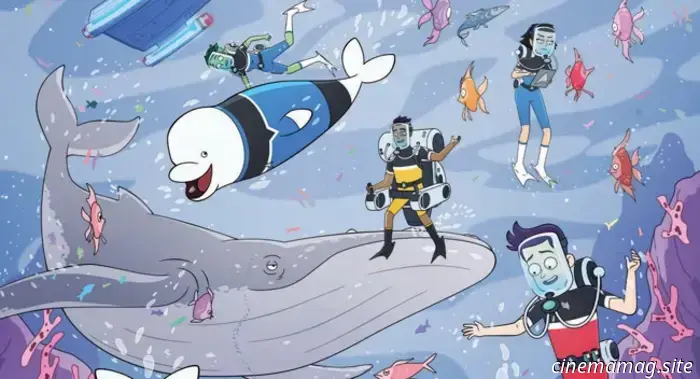 Star Trek: Lower Decks #11 - Comic Book Teaser
The crew of the U.S.S. Cerritos is having a fantastic time in 1987 in this week's Star Trek: Lower Decks #11 from IDW Publishing. Below, we have the official preview of the issue for you; take a look… Squeak, squawk, sssskkkaaa, eh, eee. [Translation: Cetacean Ops here! Matt and I have brought the […]
Star Trek: Lower Decks #11 - Comic Book Teaser
The crew of the U.S.S. Cerritos is having a fantastic time in 1987 in this week's Star Trek: Lower Decks #11 from IDW Publishing. Below, we have the official preview of the issue for you; take a look… Squeak, squawk, sssskkkaaa, eh, eee. [Translation: Cetacean Ops here! Matt and I have brought the […]
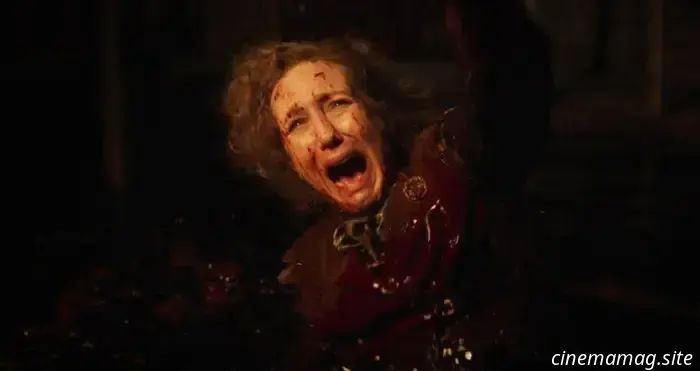 The Conjuring: Last Rites achieves the second largest global opening for a horror film at the box office.
Throughout The Conjuring franchise, Lorraine Warren has experienced her share of premonitions, but even she could not have anticipated the box-office success of The Conjuring: Last Rites. The fourth and ‘final’ installment in the main Conjuring series was expected to generate around $40 million at the domestic box office, yet it achieved $55 million.
The Conjuring: Last Rites achieves the second largest global opening for a horror film at the box office.
Throughout The Conjuring franchise, Lorraine Warren has experienced her share of premonitions, but even she could not have anticipated the box-office success of The Conjuring: Last Rites. The fourth and ‘final’ installment in the main Conjuring series was expected to generate around $40 million at the domestic box office, yet it achieved $55 million.
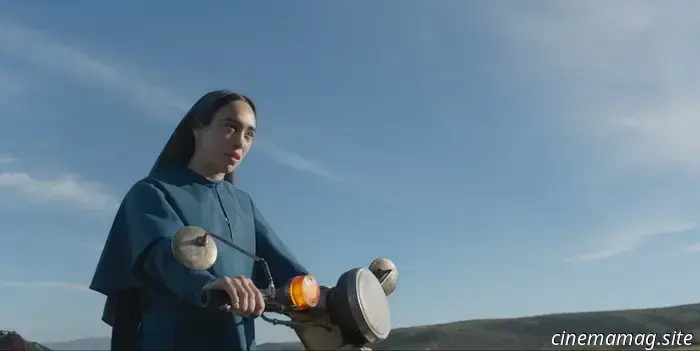 An Exclusive Trailer Unveils a Buñuelian Fable for Karla Badillo’s Oca, Premiering at TIFF.
Having its world premiere this Tuesday in the Discovery section of the 50th Toronto International Film Festival, Karla Badillo's directorial debut, Oca, unfolds a Buñuelian tale of faith, pilgrimage, and revelation. The film features a remarkable cast that includes Natalia Solián (Huesera: The Bone Woman), Cecilia Suárez (The House of Flowers), Leonardo Ortizgris (Güeros), and Gerardo Trejo-Luna (A Million).
An Exclusive Trailer Unveils a Buñuelian Fable for Karla Badillo’s Oca, Premiering at TIFF.
Having its world premiere this Tuesday in the Discovery section of the 50th Toronto International Film Festival, Karla Badillo's directorial debut, Oca, unfolds a Buñuelian tale of faith, pilgrimage, and revelation. The film features a remarkable cast that includes Natalia Solián (Huesera: The Bone Woman), Cecilia Suárez (The House of Flowers), Leonardo Ortizgris (Güeros), and Gerardo Trejo-Luna (A Million).
7 Remarkable Dystopian Thrillers from the 1970s
Casey Chong journeys back to the 1970s to explore a range of exceptional dystopian thriller films. The 1970s was a period characterized by auteur-centered filmmaking that emphasized creative liberty and witnessed the advent of contemporary blockbusters such as Jaws and Star Wars. This era also marked the rise of films that centered on […]
